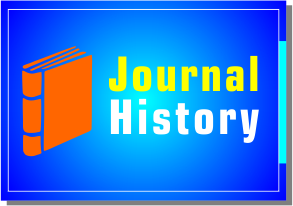Implementasi Kebijakan Peningkatan Partisipasi Pemilih Pemula melalui Program “Goes To School di Kota Surabaya
DOI:
https://doi.org/10.31334/transparansi.v7i1.3759Keywords:
Implementation organizationAbstract
This research aimed to describe the implementation of policies to increase the participation of first-time voters through the KPU’s “Goes To School program in Surabaya. This study uses a qualitative approach with a research method based on Smith (1973) implementation theory, which consist of four stages of implementation as indicators: idealized policy, target groups, implementing organization, and environmental factor. The data collection techniques used are interviews, observations, and documents. The number of informants is six participants, including KPU Staff, BAWASLU Staff, LSM Staff, Media, Khadijah High School Students, and first-time voter participant. The result show that each indicator used in the implementation of the election participation policy through the “Goes To School program in Surabaya has shown improvement and has been quite succesful as an effort to reduce the number of non-voters. ABSTRAK Penelitian ini bertujuan untuk mendeskripsikan implementasi kebijakan peningkatan partisipasi pemilih pemula melalui program "Goes To School" KPU Kota Surabaya. Penelitian ini menggunakan pendekatan kualitatif dengan metode penelitian berdasarkan teori implementasi Smith (1973), yang terdiri dari empat tahap implementasi sebagai indikator: kebijakan yang diidealkan, kelompok sasaran, organisasi pelaksana, dan faktor lingkungan. Teknik pengumpulan data yang digunakan adalah wawancara, observasi, dan dokumen. Jumlah informan sebanyak enam orang, yaitu Staf KPU, Staf BAWASLU, Staf LSM, Media, Siswa SMA Khadijah, dan peserta pemilih pemula. Hasil penelitian menunjukkan bahwa setiap indikator yang digunakan dalam implementasi kebijakan partisipasi pemilu melalui program "Goes To School" di Kota Surabaya telah menunjukkan peningkatan dan cukup berhasil sebagai upaya untuk mengurangi angka golput.References
Akib, H. (2010). Implementasi Kebijakan: Apa, Mengapa, dan Bagaimana Haedar Akib.
Mahsun, M., & Mufrikhah, S. (2019). Serangan Hoax Terhadap KPU Pada Pemilu Serentak 2019: Studi di Jawa Tengah. Komisi Pemilihan Umum Jawa Tengah 2019, 63–109.
Parawansa, K. I. (2002). Hambatan terhadap Partisipasi Politik Perempuan di Indonesia Perempuan di Parlamen, Bukan Sekedar Jumlah. Academia.Eduademia, 41–52.
Pramono, J. (2020). Implementasi dan Evaluasi Kebijakan Publik. In Kebijakan Publik.
Primadi, A., Efendi, D., & Sahirin. (2019). Peran Pemilih Pemula Dalam Pengawasan Pemilu Partisipatif (Studi Kasus : Kelompok Agen Pengawasan Bawaslu Bangka Selatan). Journal of Political Issues, 1(1), 63–73.
Putri Yolanda, H., & Halim, U. (2020). Partisipasi Politik Online Generasi Z Pada Pemilihan Presiden Indonesia 2019. CoverAge: Journal of Strategic Communication, 10(2), 30–39. https://doi.org/10.35814/coverage.v10i2.1381
Rahman, A. (2017). Peran Sekolah Sebagai Sarana Sosialisasi Politik untuk Meningkatkan Partisipasi Politik Pada Pemilih Pemula. Prosiding Konferensi Nasional Kewarganegaraan III, November, 319–320.
Septiani, E. (2023). Analisis Terhadap Upaya Penguatan Implementasi Kebijakan Netralitas ASN dalam Pemilu. Ebisma (Economics, Business, Management, & Accounting Journal), 3(1), 23–36. https://doi.org/10.61083/ebisma.v3i1.24
Silalahi, W., Letjen, J., No, S. P., Barat, J., & Jakarta, D. K. I. (2024). Model Pemilihan Serentak Dan Peranan Komisi Pemilihan Umum Pada Pemilihan Serentak Tahun 2024 the Simultaneous Election Model and the Role of the General Election Commission in 2024. 65–79.
Sirajuddin. (2016). Penerbit Pustaka Ramadhan, Bandung. Analisis Data Kualitatif, 180. https://core.ac.uk/download/pdf/228075212.pdf
Sudrajat, T. (2014). Evaluasi Kebijakan Rekruitmen Anggota KPU Kabupaten/Kota Dalam Penyelenggaraan Pemilu Tahun 2014. Jurnal Ilmu Administrasi, XI(April), 1–9. http://www.stialanbandung.ac.id/index.php?option=com_content&view=article&id=639:evaluasi-kebijakan-rekrutmen-anggota-kpu-kabupatenkota-dalam-penyelengaraan-pemilu-tahun-2014-di-jawa-barat&catid=61:volume-xi-no1-tahun-2014&Itemid=63
Sugiyono, D. (2013). Metode Penelitian Kuantitatif, Kualitatif, dan Tindakan.
Widyana, M. R. (2022). Strategi Partai Gelora Sebagai Partai Baru Menuju Pemilu 2024 Untuk Memenuhi Parliamentary Threshold. Jurnal PolGov, 4(1), 125–168. https://doi.org/10.22146/polgov.v4i1.3861
Wijaya, N. (2018). Faktor-Faktor Yang Mempengaruhi Stres Kerja Anggota Bawaslu Kabupaten Sumedang Dalam Mengawal Tahapan Pemilu. Jurnal Ilmu Dan Riset Akuntansi, 7(9), 1–19.
Yaw, A. La. (2008). Konsep Dasar Kebijakan Publik. Atmospheric Environment, 42(13), 2934–2947.
Yusrin, Y., & Salpina, S. (2023). Partisipasi Generasi Millenial dalam Mengawasi Tahapan Pemilu 2024. Journal on Education, 5(3), 9646–9653. https://doi.org/10.31004/joe.v5i3.1842
Downloads
Published
Issue
Section
License

This work is licensed under a Creative Commons Attribution-ShareAlike 4.0 International License
Please find the rights and licenses in Transparansi : Jurnal Ilmiah Ilmu Administrasi By submitting the article/manuscript of the article, the author(s) agree with this policy. No specific document sign-off is required.
- License
The commercial use of the article will be governed by the Creative Commons Attribution license as currently displayed on Creative Commons Attribution-ShareAlike 4.0 International License.
2. Author(s)' Warranties
The author warrants that the article is original, written by stated author(s), has not been published before, contains no unlawful statements, does not infringe the rights of others, is subject to copyright that is vested exclusively in the author and free of any third party rights, and that any necessary written permissions to quote from other sources have been obtained by the author(s).
3. User Rights
Transparansi : Jurnal Ilmiah Ilmu Administrasi spirit is to disseminate articles published are as free as possible. Under the Creative Commons license, Transparansi : Jurnal Ilmiah Ilmu Administrasi permits users to copy, distribute, display, and perform the work for non-commercial purposes only. Users will also need to attribute authors and Transparansi : Jurnal Ilmiah Ilmu Administrasi on distributing works in the journal and other media of publications.
4. Co-Authorship
If the article was jointly prepared by more than one author, any authors submitting the manuscript warrants that he/she has been authorized by all co-authors to be agreed on this copyright and license notice (agreement) on their behalf, and agrees to inform his/her co-authors of the terms of this policy. Transparansi : Jurnal Ilmiah Ilmu Administrasi will not be held liable for anything that may arise due to the author(s) internal dispute. Transparansi : Jurnal Ilmiah Ilmu Administrasi will only communicate with the corresponding author.
5. Miscellaneous
Transparansi : Jurnal Ilmiah Ilmu Administrasi will publish the article (or have it published) in the journal if the article’s editorial process is successfully completed. Transparansi : Jurnal Ilmiah Ilmu Administrasi editors may modify the article to a style of punctuation, spelling, capitalization, referencing and usage that deems appropriate. The author acknowledges that the article may be published so that it will be publicly accessible and such access will be free of charge for the readers as mentioned in point 3.
Every accepted manuscript should be accompanied by "Copyright Transfer Agreement"prior to the article publication.











